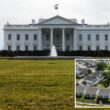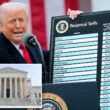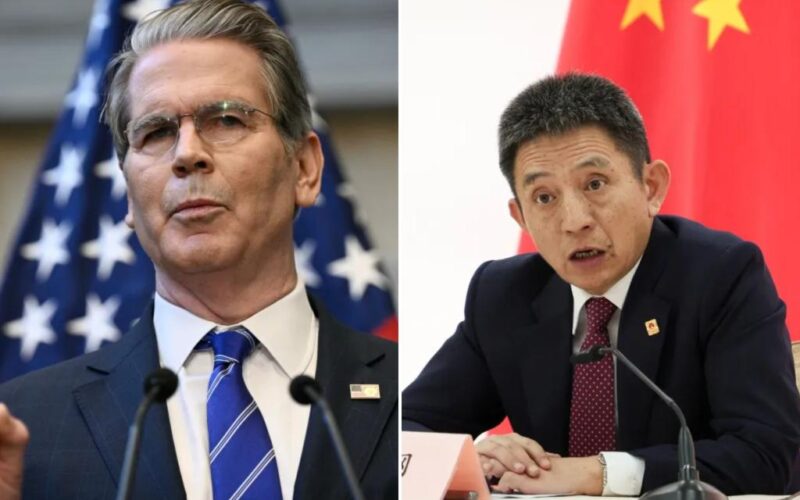WASHINGTON — Treasury Secretary Scott Bessent described China’s lead trade negotiator as “unhinged” Wednesday — and announced the US is planning “price floors” and “forward buying” to prevent future supply chain disruptions by Beijing’s export controls.
Bessent made the remarks five days after President Trump threatened an additional 100% tariff on Chinese goods in response to Beijing’s rules requiring companies to seek permission to export products made with rare-earth or critical minerals, reducing the flow of batteries, magnets and semiconductors to the US.
The Treasury secretary revealed more of the backstory behind China’s surprise rule changes announced Oct. 9, claiming that a bellicose trade emissary named Li Chenggang “showed up uninvited” in DC on Aug. 28 and threatened that “China would unleash chaos on the global system” if the US didn’t abandon docking fees for Chinese ships.
“There was a lower level trade person who was slightly unhinged here in August … threatening, saying China would unleash chaos on the global system if the US went ahead with our docking fees on Chinese ships, and this is something they clearly were planning all along,” Bessent said during CNBC’s “Invest in America” forum.
“I think things can de-escalate. We have things that are more powerful than the rare earth export controls that the Chinese want to put on — and to be clear, this is China versus the world.”
Bessent said that price floors, which could prevent China from undercutting upstart competitors in the critical fields, are coming as a tactic to secure supply chains — noting that US carmakers already have reported a slowdown in deliveries of essential magnets.
“We are going to set price floors and the forward buying to make sure that this doesn’t happen again and we’re going to do it across a range of industries,” Bessent told CNBC anchor Sara Eisen.
Bessent and US Trade Representative Jamieson Greer said at a subsequent press conference Wednesday that they hope Chinese officials would back down — but that the US is preparing for alternatives.
“If China wants to be an unreliable partner to the world, then the world will have to decouple,” Bessent said.
“The world does not want to decouple. We want to de-risk. But signals like this are signs of decoupling, which we don’t believe China wants — and again, we do not want to decouple. We should work together to de-risk and diversify our supply chains away from China, as quickly as possible.”
Bessent added that Trump’s planned Oct. 29 meeting with Chinese President Xi Jinping remains on the schedule — despite the US president’s threat to cancel the summit.
“Ultimately, we are confident in the strong relationship between President Trump and President Xi. We’ve had substantial communication with the Chinese over the past few days and we believe that there will be more forthcoming this week,” Bessent said.
“Perhaps that vice minister who showed up here with very incendiary language on August 28 … perhaps he’s gone rogue.
Bessent accused Li of being “very disrespectful” over the summer.
“He showed up uninvited in Washington and said, ‘China will cause global chaos if the port shipping fees go through,’” Bessent said.
Greer said that his office is prepared to carry out Trump’s additional 100% tariff threat on Nov. 1 if China doesn’t change course.
“Our expectation is that they won’t implement this and that we’ll be able to be back to where we were a week ago, where we had the tariff levels we’ve agreed to and we have the flow of earth magnets we agreed to,” Greer said.
The trade representative also said that Beijing’s curbs on exporting products made with rare earth and critical minerals shows that China also can turn off the flow of fentanyl precursors — which have led to the deaths of roughly one in every 1,000 Americans over five years, and for which Trump imposed a standing 20% tariff.
“If the Chinese can cut off rare earths and export-control them,” Greer said, “they certainly can control the precursors for fentanyl as well.”








